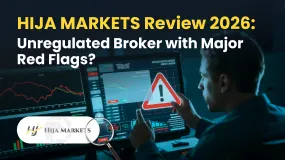Abstract:The allure of quick and easy riches has long captivated individuals worldwide, and Southeast Asia is no exception. Unfortunately, this region has become a hotbed for radical money games and broker scams, preying on the aspirations of unsuspecting victims. These deceptive schemes often promise exorbitant returns with minimal effort, enticing individuals into a web of financial ruin.

Radical money games, also known as Ponzi schemes, operate on a simple yet deceptive principle: new investors' funds are used to pay off earlier investors, creating an illusion of profitability. These schemes typically involve a complex network of participants, with recruiters earning commissions for bringing in new members.
A notorious example of such a scheme is Midas Touch International, which operated in Malaysia and Singapore. This Ponzi scheme promised returns of up to 50% per month, enticing thousands of investors to participate. However, as the pool of new investors dwindled, the scheme inevitably collapsed in 2014, leaving investors with losses estimated at over RM200 million (S$64 million).
Similarly, DuitNow Money Game, operating in Malaysia, promised returns of up to 100% per month. This scheme followed the same modus operandi, attracting a large number of investors with its unrealistic promises. But like its predecessor, DuitNow Money Game collapsed in 2021, leaving thousands of investors with losses estimated at over RM500 million (S$160 million).
The reach of these Ponzi schemes extended beyond Malaysia and Singapore, with MMM Global operating in several Southeast Asian countries. MMM Global promised returns of up to 30% per month, capturing the attention of investors across the region. However, the scheme's unsustainable nature led to its collapse in 2016, leaving thousands of investors with losses estimated at over US$2 billion.
Broker scams, another prevalent form of financial fraud in Southeast Asia, involve individuals posing as legitimate brokers or investment advisors. These scammers often target individuals with limited financial knowledge, promising to help them invest in lucrative opportunities.
One prominent example of a broker scam is Asia Innovations Group, which operated in Malaysia and Singapore. This investment scam claimed to have developed a revolutionary trading algorithm that could generate guaranteed returns. The scam attracted a significant number of investors, who were deceived by the promise of high returns without risk. However, the scam was exposed in 2019, with investors losing over RM100 million (S$32 million).
Option88, operating in Indonesia, followed a similar pattern. This investment scam promised high returns through binary options trading, a complex and risky investment strategy. The scam targeted individuals with limited financial literacy, exploiting their lack of understanding of the risks involved. When the scam was exposed in 2017, investors had lost over Rp1 trillion (US$68 million).
Malaysia was also the target of Ace Capital Synergy, an investment scam that promised high returns through forex trading. This scam followed the same playbook as the others, enticing investors with unrealistic promises of easy riches. However, the scam's unsustainable nature led to its exposure in 2019, leaving investors with losses estimated at over RM50 million (S$16 million).

The consequences of radical money games and broker scams are far-reaching, leaving individuals with crippling debt, shattered dreams, and eroded trust in financial institutions. These scams can have a devastating impact on families and communities, hindering economic growth and perpetuating poverty cycles.
The collapse of Midas Touch International, DuitNow Money Game, and MMM Global left thousands of investors struggling to make ends meet, facing financial ruin and emotional turmoil. The losses incurred by these victims have had a ripple effect on their families and communities, hindering their ability to access basic necessities and pursue educational and economic opportunities.
Similarly, the exposure of Asia Innovations Group, Option88, and Ace Capital Synergy has eroded public trust in financial institutions and investment professionals. These scams have highlighted the prevalence of financial fraud in the region, making individuals more cautious and hesitant to invest their hard-earned money.
The fight against radical money games and broker scams requires a multifaceted approach. Raising awareness among potential victims through public education campaigns is crucial to prevent them from falling prey to these deceptive schemes.
Empowering individuals with financial literacy skills is equally important, enabling them to make informed investment decisions and recognize the red flags associated with scams. Educational initiatives should focus on teaching individuals about the basics of investing, the different types of investment vehicles, and the risks involved.











